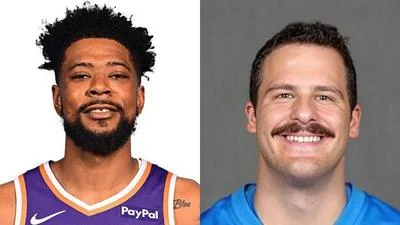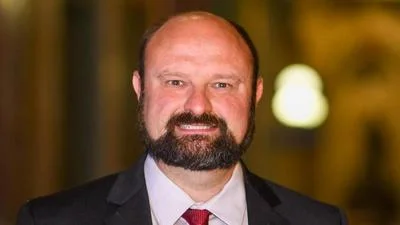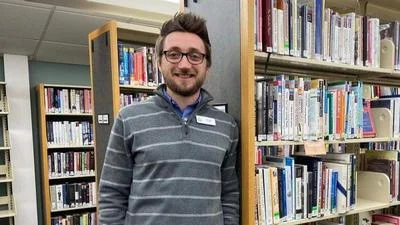Memorial Hospital East issued the following announcement on July 30
When it comes to saving lives, it doesn’t always happen in an emergency room or even in a hospital. Many times, we can save lives through state-of-the-art screenings and other medical technologies.
For two Memorial patients, it was a simple CT lung cancer screening that saved their lives.
Charles Zeller and Bonnie Spengler each had a CT lung cancer screening within the last three years. To be eligible for this screening, you must meet certain criteria.
Who qualifies for the screening?
“Lung screening is criteria based,” explained Michelle Struense, Memorial’s CT Lung Cancer Screening coordinator. “Patients must be between ages 55-77 and either be a current cigarette smoker or one who has quit no longer than 15 years ago. The patient would have to have smoked a 30-pack-year history. When I talk about 30-pack-year history, this means one pack of cigarettes per day for 30 years of their life, smoked two packs per day for 15 years, or ¾ a pack per day for 40 years. The patient must not present with symptoms of lung cancer, which can be difficult to determine at times in a person with a long smoking history due to other smoking-related issues. As the lung screening coordinator, I must do my best assessment with the patient prior to their exam to determine that the patient is in criteria. This includes review of patient order, chart, and a telephone encounter with the patient.”
“If we do find a suspicious lung nodule that could be cancer, there are guidelines followed for surveillance and follow-up testing. The goal is to catch lung cancer early, so we can treat it early and preserve lung tissue,” Struense said. “With lung cancer most often, once a patient starts having symptoms, the cancer has already started to spread. When we do yearly screenings, and we start early as soon as the patient meets screening criteria, we can watch for any development of suspicious lung nodules. This way we can catch the cancer early and start treatment before it has spread to the rest of the lung, lymph nodes, or other areas of the body.”
What happens during the screening?
“Lung screening is a non-invasive test,” Struense said. “Basically, the patient lays on their back for less than five minutes while the technician scans them. I many times tell the patient when I speak with them that the exam takes less time than the registration process. There is no fasting of food, drink, or medication because there is no IV contrast given for lung screening. This makes the exam easy and quick.”
Results are read by a radiologist and usually sent to the ordering physician within 24-48 hours.
A non-smoker for years, a screening still showed cancer
Belleville resident Zeller, 74, credits his wife with putting everything in motion for him to get the screening.
“It was my wife, Karen, who had become concerned that I was not getting sufficient care from our regular doctor,” Zeller said. She scheduled an appointment with Dr. Douglas Dothager, the pulmonologist who suggested Zeller get a lung CT screening. He quit smoking around 2006 or 2007, so he still met the criteria for the screening.
“I think it was June 2019, and we went ahead and had the screening,” Zeller recalled. “It came up with, of course, a discovery of a small cancer cell in that upper left part of the lung.” After a biopsy, Zeller was given the option of surgery or radiation treatment.
Zeller said he chose surgery “because that would enable the surgeon to explore not only the idea of getting the cancer removed but do exploration of the surrounding tissue and lymph node areas and make sure it hadn’t spread.” Since his surgery, he’s had three CT scans that all have shown no apparent regrowth.
Thanks to Karen, Zeller got the care he needed. He believes family is important when it comes to “the total care of a person.”
A doctor’s recommendation saved her life
Spengler, 64, of Caseyville, got the screening because her doctor said she and her husband, Steve, should both have one since they had never been screened. She’s been a smoker since she was 18, and she said she probably smokes one pack a day.
“They found a lump, pretty good sized, on my left lung wall,” Spengler said. “My treatment after that was chemo and radiation. And after that I had immunotherapy. It was done at Siteman.”
Although she’s not cancer free, her cancer is much smaller than it was. Spengler believes getting a lung screening saved her life.
Do you need a screening?
If you meet the criteria for a lung cancer CT screening, talk to your doctor about a referral to Memorial. You can learn more at memhosp.org/lung. “Hopefully this article will save someone’s life,” Zeller said.
Designated Lung Cancer Screening Center
Memorial is a designated Lung Cancer Screening Center by the American College of Radiology (ACR). “With this, we do report everything to the ACR,” Struense said. “Being accredited, they have reviewed our CT scanners to make sure that everything is being done in the appropriate manner as far as the guidelines for lung screening. The scanners are credentialed for lung cancer screening.” In addition, the radiologists are specially certified to read lung cancer CT screenings
Original source can be found here.






 Alerts Sign-up
Alerts Sign-up